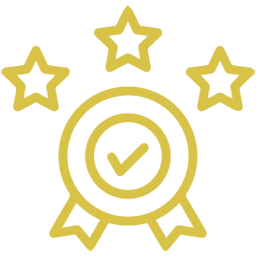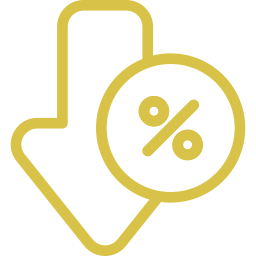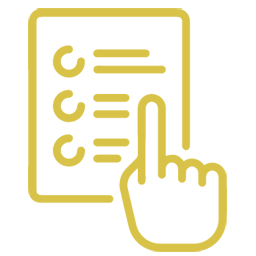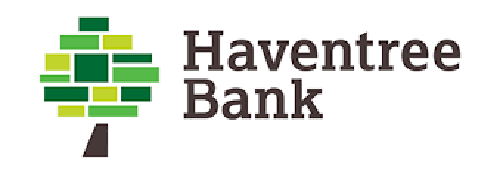Produits
Une large gamme de produits pour répondre à tous vos besoins.
Nous proposons une large gamme de produits et une grande flexibilité pour répondre à tous vos besoins.
Avec des taux d’intérêt toujours historiquement bas, il n’y a pas de meilleur moment que maintenant pour acheter votre première maison. Laissez notre équipe dévouée de courtiers hypothécaires vous guider dans cet achat important. Appelez-nous aujourd’hui pour obtenir plus d’informations et pour une pré-approbation gratuite. Il est important de connaître votre gamme de prix, combien vous pouvez vous permettre d’acheter en toute confiance et de rester concentré tout au long du processus. Peu importe votre situation, nous avons des solutions pour vous et pouvons vous aider à réaliser vos rêve en immobilier.
Nous adoptons une approche unique pour vous guider dans votre première maison de manière complète et claire. Nous travaillerons ensemble pour vous permettre de comprendre tous les aspects de l’approche d’achat de maison tout en bénéficiant des meilleurs taux d’intérêt sur le marché.
La plupart des gens passent beaucoup de temps à magasiner pour leur hypothèque initiale, mais ce n’est généralement pas le cas lorsque les hypothèques arrivent à échéance. Dans le monde d’aujourd’hui, les gens omettent souvent d’accorder une attention appropriée au moment du renouvellement, ce qui leur coûte des milliers de dollars de plus. En fait, il est dit que près de 60% des emprunteurs ne font que signer et renvoyer leur renouvellement qui leur est d’abord offert par leur prêteur existant, sans même magasiner pour un meilleur taux.
Avant d’entendre de votre prêteur, demandez à votre professionnel hypothécaire agréé de faire les courses pour vous. Nous faisons affaires avec de multiples institutions de prêt, y compris les grandes banques, les coopératives de crédit et les fiducies; ce qui signifie que nous pouvons vous accorder un pouvoir de négociation important et vous faire économiser beaucoup d’argent. Idéalement, contactez les membres de notre équipe de quatre à six mois avant l’expiration de votre prêt hypothécaire pour avoir suffisamment de temps pour trouver la meilleure solution, le meilleur produit et le meilleur taux pour vos besoins.
Avec des taux d’intérêt toujours historiquement bas, il n’y a pas de meilleur moment que maintenant pour acheter votre première maison. Laissez notre équipe dévouée de courtiers hypothécaires vous guider dans cet achat important. Appelez-nous aujourd’hui pour obtenir plus d’informations et pour une pré-approbation gratuite. Il est important de connaître votre gamme de prix, combien vous pouvez vous permettre d’acheter en toute confiance et de rester concentré tout au long du processus. Peu importe votre situation, nous avons des solutions pour vous et pouvons vous aider à réaliser vos rêve en immobilier.
Nous adoptons une approche unique pour vous guider dans votre première maison de manière complète et claire. Nous travaillerons ensemble pour vous permettre de comprendre tous les aspects de l’approche d’achat de maison tout en bénéficiant des meilleurs taux d’intérêt sur le marché.
La plupart des gens passent beaucoup de temps à magasiner pour leur hypothèque initiale, mais ce n’est généralement pas le cas lorsque les hypothèques arrivent à échéance. Dans le monde d’aujourd’hui, les gens omettent souvent d’accorder une attention appropriée au moment du renouvellement, ce qui leur coûte des milliers de dollars de plus. En fait, il est dit que près de 60% des emprunteurs ne font que signer et renvoyer leur renouvellement qui leur est d’abord offert par leur prêteur existant, sans même magasiner pour un meilleur taux.
Avant d’entendre de votre prêteur, demandez à votre professionnel hypothécaire agréé de faire les courses pour vous. Nous faisons affaires avec de multiples institutions de prêt, y compris les grandes banques, les coopératives de crédit et les fiducies; ce qui signifie que nous pouvons vous accorder un pouvoir de négociation important et vous faire économiser beaucoup d’argent. Idéalement, contactez les membres de notre équipe de quatre à six mois avant l’expiration de votre prêt hypothécaire pour avoir suffisamment de temps pour trouver la meilleure solution, le meilleur produit et le meilleur taux pour vos besoins.
Il existe une panoplie de raisons pour lesquelles le refinancement de votre maison pourrait être une bonne option pour vous. Pourquoi ne pas utiliser le capital disponible dans votre demeure pour consolider votre dette et de repayer certaines de vos autres obligations? Avec les taux d’intérêts hypothécaires, il n’y a pas un meilleur temps que maintenant pour prendre avantage de vos finances afin de consolider le tout en des paiements mensuels simples qui vous laisseront avec de l’argent de plus pour investir ou pour faire quelques rénovations!
Contactez-nous aujourd’hui afin qu’un de nos représentatifs puisse revoir vos fichiers et pourra vous montrer vos options de refinancement.
Ce n’est pas parce que vous êtes un nouvel immigrant ou un non-résident et que vous n’avez pas d’antécédents financiers au Canada que vous devez attendre pour acheter une maison. Nous avons plusieurs solutions disponibles pour les clients dans toutes sortes de situations. Appelez-nous aujourd’hui ; avec l’accès à plusieurs prêteurs, nous vous aiderons à trouver le bon produit pour vous.
Avec l’immobilier qui est une des catégories d’investissement les plus attrayantes et sécuritaires au Canada depuis une décennie, nous comprenons votre désir d’investir et d’acheter des propriétés d’investissement et des unités à plusieurs résidences. Nous sommes dans la capacité de financer un condo individuel jusqu’à un complexe de 100 à 200 unités. Veuillez nous appeler pour tous vos besoins de financement. Notre équipe est en place et en mesure d’explorer des nouvelles options et d’excellents taux avec vous.
Ce n’est pas parce que vous êtes un nouvel immigrant ou un non-résident et que vous n’avez pas d’antécédents financiers au Canada que vous devez attendre pour acheter une maison. Nous avons plusieurs solutions disponibles pour les clients dans toutes sortes de situations. Appelez-nous aujourd’hui ; avec l’accès à plusieurs prêteurs, nous vous aiderons à trouver le bon produit pour vous.
Avec l’immobilier qui est une des catégories d’investissement les plus attrayantes et sécuritaires au Canada depuis une décennie, nous comprenons votre désir d’investir et d’acheter des propriétés d’investissement et des unités à plusieurs résidences. Nous sommes dans la capacité de financer un condo individuel jusqu’à un complexe de 100 à 200 unités. Veuillez nous appeler pour tous vos besoins de financement. Notre équipe est en place et en mesure d’explorer des nouvelles options et d’excellents taux avec vous.
Il existe une panoplie de raisons pour lesquelles le refinancement de votre maison pourrait être une bonne option pour vous. Pourquoi ne pas utiliser le capital disponible dans votre demeure pour consolider votre dette et de repayer certaines de vos autres obligations? Avec les taux d’intérêts hypothécaires, il n’y a pas un meilleur temps que maintenant pour prendre avantage de vos finances afin de consolider le tout en des paiements mensuels simples qui vous laisseront avec de l’argent de plus pour investir ou pour faire quelques rénovations!
Contactez-nous aujourd’hui afin qu’un de nos représentatifs puisse revoir vos fichiers et pourra vous montrer vos options de refinancement.
Le fait d’être un travailleur indépendant n’a pas toujours facilité l’obtention d’une hypothèque auprès des banques de premier rang. Souvent, le représentant hypothécaire d’une grande banque ne prendra pas le temps nécessaire ou n’aura pas les connaissances nécessaires pour traiter ces dossiers avec l’expérience requise. Le groupe hypothécaire Orbis et ses courtiers ont accès à un large éventail de prêteurs de type A et de prêteurs alternatifs qui peuvent offrir d’excellents programmes de travail indépendant et à revenu fixe. Notre objectif est de rendre plus facile que jamais d’obtenir une hypothèque tout en vous assurant d’avoir le meilleur taux sur le marché pour votre situation. Vous pouvez maintenant profiter de la flexibilité du revenu et du crédit qui accompagne la possession d’une entreprise tout en étant admissible à un prêt personnel maximal. Que vous soyez propriétaire d’une corporation ou d’une petite entreprise familiale, ces prêteurs comprennent que les travailleurs indépendants ont droit à des déductions fiscales et que le revenu est assujetti à un test de vraisemblance. Laissez notre équipe vous guider et trouver des solutions indépendamment de votre situation.
Votre courtier hypothécaire Orbis pourra évaluer vos besoins en hypothèque et pourra déterminer si votre hypothèque courante est toujours la bonne pour vous. Nous pouvons vous aider à évaluer vos différents choix et vous aider à trouver des alternatives qui sauront mieux combler vos besoins, et même vous sauver de l’argent.
Que vous envisagez de faire des réparations inévitables, de bâtir une extension pour votre famille grandissante ou d’ajouter une piscine à votre cour, les rénovations de maison peuvent vous aider à profiter davantage de votre demeure et de potentiellement la faire croître en valeur. Plusieurs canadiens ont pris avantage du patrimoine ou de la valeur de leur demeure et les taux hypothécaires bas pour emprunter, afin qu’ils aient l’argent pour entreprendre ces projets. Contactez notre équipe dès aujourd’hui pour discuter de comment vous pouvez accéder ces fonds additionnels pour rendre votre maison en celle de vos rêves.
Le fait d’être un travailleur indépendant n’a pas toujours facilité l’obtention d’une hypothèque auprès des banques de premier rang. Souvent, le représentant hypothécaire d’une grande banque ne prendra pas le temps nécessaire ou n’aura pas les connaissances nécessaires pour traiter ces dossiers avec l’expérience requise. Le groupe hypothécaire Orbis et ses courtiers ont accès à un large éventail de prêteurs de type A et de prêteurs alternatifs qui peuvent offrir d’excellents programmes de travail indépendant et à revenu fixe. Notre objectif est de rendre plus facile que jamais d’obtenir une hypothèque tout en vous assurant d’avoir le meilleur taux sur le marché pour votre situation. Vous pouvez maintenant profiter de la flexibilité du revenu et du crédit qui accompagne la possession d’une entreprise tout en étant admissible à un prêt personnel maximal. Que vous soyez propriétaire d’une corporation ou d’une petite entreprise familiale, ces prêteurs comprennent que les travailleurs indépendants ont droit à des déductions fiscales et que le revenu est assujetti à un test de vraisemblance. Laissez notre équipe vous guider et trouver des solutions indépendamment de votre situation.
Votre courtier hypothécaire Orbis pourra évaluer vos besoins en hypothèque et pourra déterminer si votre hypothèque courante est toujours la bonne pour vous. Nous pouvons vous aider à évaluer vos différents choix et vous aider à trouver des alternatives qui sauront mieux combler vos besoins, et même vous sauver de l’argent.
Que vous envisagez de faire des réparations inévitables, de bâtir une extension pour votre famille grandissante ou d’ajouter une piscine à votre cour, les rénovations de maison peuvent vous aider à profiter davantage de votre demeure et de potentiellement la faire croître en valeur. Plusieurs canadiens ont pris avantage du patrimoine ou de la valeur de leur demeure et les taux hypothécaires bas pour emprunter, afin qu’ils aient l’argent pour entreprendre ces projets. Contactez notre équipe dès aujourd’hui pour discuter de comment vous pouvez accéder ces fonds additionnels pour rendre votre maison en celle de vos rêves.
Chez le groupe hypothécaire Orbis, nous sommes capables de prendre votre rêve et le rendre une réalité. Veuillez nous contactez pour évaluer vos désirs ou objectifs spécifiques et nous nous assurerons que le tout soit fait avec votre rêve en priorité.
Les grandes banques ne s’adressent qu’aux clients spécifiques de type A et n’offrent pas d’options aux clients qui ont des difficultés à court terme. Cela peut être un problème de crédit, un problème de revenu ou d’autres difficultés. Nous sommes ici pour trouver la meilleure option au plus bas taux pour votre situation spécifique. Le groupe hypothécaire Orbis a de l’expérience dans toutes ces situations. Appelez-nous!
Au groupe hypothécaire Orbis, nous pouvons vous aider à réaliser votre plan de financement de la construction vers la maison de vos rêves. De nombreuses institutions ont des programmes différents et nous sommes là pour vous guider. Appelez-nous pour discuter de votre plan spécifique.
Chez le groupe hypothécaire Orbis, nous sommes capables de prendre votre rêve et le rendre une réalité. Veuillez nous contactez pour évaluer vos désirs ou objectifs spécifiques et nous nous assurerons que le tout soit fait avec votre rêve en priorité.
Les grandes banques ne s’adressent qu’aux clients spécifiques de type A et n’offrent pas d’options aux clients qui ont des difficultés à court terme. Cela peut être un problème de crédit, un problème de revenu ou d’autres difficultés. Nous sommes ici pour trouver la meilleure option au plus bas taux pour votre situation spécifique. Le groupe hypothécaire Orbis a de l’expérience dans toutes ces situations. Appelez-nous!
Au groupe hypothécaire Orbis, nous pouvons vous aider à réaliser votre plan de financement de la construction vers la maison de vos rêves. De nombreuses institutions ont des programmes différents et nous sommes là pour vous guider. Appelez-nous pour discuter de votre plan spécifique.
Vous cherchez une hypothèque? Ne cherchez pas plus loin que la première agence du Canada. Nous travaillons avec les meilleures institutions, y compris les banques, les coopératives de crédit et les prêteurs privés, afin de trouver les meilleurs taux et produits pour vous. Nos experts agréés vous donnent des conseils personnalisés et simplifient le processus, ce qui vous permet d’économiser du temps et de l’argent. Commencez dès aujourd’hui.

Une équipe extrêmement expérimentée avec des décennies de connaissances combinées en financement résidentiel et commercial.

Grâce à notre accès à des centaines d’établissements de crédit partout au Canada, nous sommes en mesure de vous offrir les meilleurs taux sur le marché.

Peu importe si vous êtes un acheteur d’une première maison, un travailleur indépendant ou un non-résident, nous avons accès aux bons programmes et produits qui répondront à tous vos besoins de financement.

Notre équipe dévouée de spécialistes en prêts hypothécaires est disponible 24 heures sur 24 et 7 jours sur 7 pour vous donner des conseils d’experts gratuits. En travaillant pour vous et non pour une institution financière, nos courtiers chercheront le marché pour vous trouver les meilleurs produits et les meilleurs taux.
Les noms ci-dessous ne sont que ceux de quelques-uns des prêteurs avec lesquels nous travaillons. Votre choix n’est pas limité par ces institutions. Nous avons beaucoup d’autres solutions hypothécaires pour des scénarios financiers plus complexes. Nos ententes et notre structure nous ont permis d’avoir le plus de relations de prêt au Canada.














De nombreux autres prêteurs alternatifs et privés
Assureurs



Associations

Autorité de réglementation

Faites partie d’une communauté en pleine croissance. Des milliers de Canadiens ont choisi le Groupe hypothécaire Orbis pour leurs besoins hypothécaires. Faites-nous confiance pour vous guider dans votre démarche de financement immobilier.
Hypothèques traitées
annuellement
Experts hypothécaires
disponibles et membres de
l’équipe passionnés
Expérience moyenne
par conseiller hypothécaire
agréé
Des clients satisfaits
Au Groupe Orbis, nous sommes fiers d’être le choix de confiance d’innombrables propriétaires.